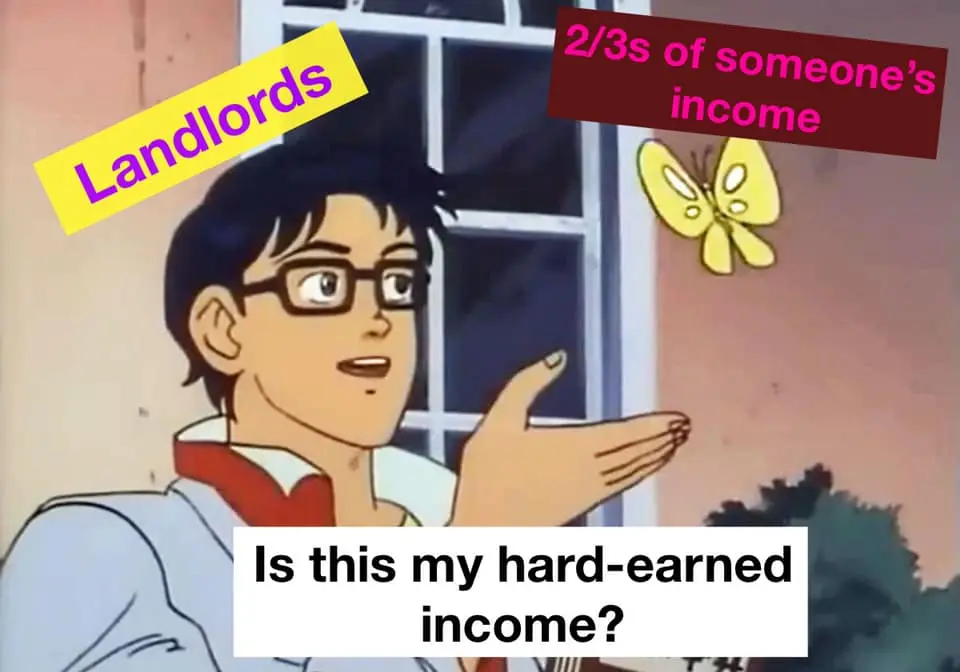this post was submitted on 11 Jan 2024
1111 points (93.2% liked)
memes
9806 readers
6 users here now
Community rules
1. Be civil
No trolling, bigotry or other insulting / annoying behaviour
2. No politics
This is non-politics community. For political memes please go to [email protected]
3. No recent reposts
Check for reposts when posting a meme, you can only repost after 1 month
4. No bots
No bots without the express approval of the mods or the admins
5. No Spam/Ads
No advertisements or spam. This is an instance rule and the only way to live.
Sister communities
- [email protected] : Star Trek memes, chat and shitposts
- [email protected] : Lemmy Shitposts, anything and everything goes.
- [email protected] : Linux themed memes
- [email protected] : for those who love comic stories.
founded 1 year ago
MODERATORS
you are viewing a single comment's thread
view the rest of the comments
view the rest of the comments

If you want to assume you'll double your money somewhere else, sell up and do it.
The fact is you've borrowed against an asset, the bank took the initial risk on your ability to pay but it's secured against the asset.
The tenant is in a position they pay more per month than your mortgage payment simply based on a deposit around 20% of the property value.
You get to take on 20% of the risk of buying a house, the bank 80% of the risk, and the tenant pays you both for it.
I'm going to assume the average landlord, just as you assume average returns. Sod all work and maintenance done, no time spent. A property initially bought in good condition coasting on for 10 years with little input required.
Then sold on at a profit after the tenant has paid rent, paid into the landlords mortgage and their equity. Just before the rental value starts to reflect poor condition.
It's bought by a house flipper in poor cosmetic condition, tenants kicked out, renovations done to the lowest standard to last about 10 years. House sold on for a small additional premium as ready to rent to a buy to let landlord.
I really hope the buy to let landlords end up at a wash or worse. The tenant pays into equity, the house flipper adds value by actually working on the property.
The landlord in between just acts as an easy risk for the bank to charge their interest against while taking the tenants money. The bank makes a healthy profit and the landlord gets a cut of the tenants earnings too, simply for reducing the banks net risk to near zero by putting in their 20%.
Without the landlords banks would have to lend to the tenant directly or not at all. The lower number of actual buyers would lower the price, so they'd actually probably end up lending the same amount against the asset. But they'd have to do more work to ensure the value of the property.
Economically a passive landlord's main function is to assess value and bet on the right property for the bank. Without landlords the postcode algorithm would be all that's left as home owners tend to overvalue their potential home. And it's not enough information.
Landlords could be replaced by banks employing decent surveyors allowing them to offer that 100% mortgage without crashing the market. But they don't because landlords give them an out.